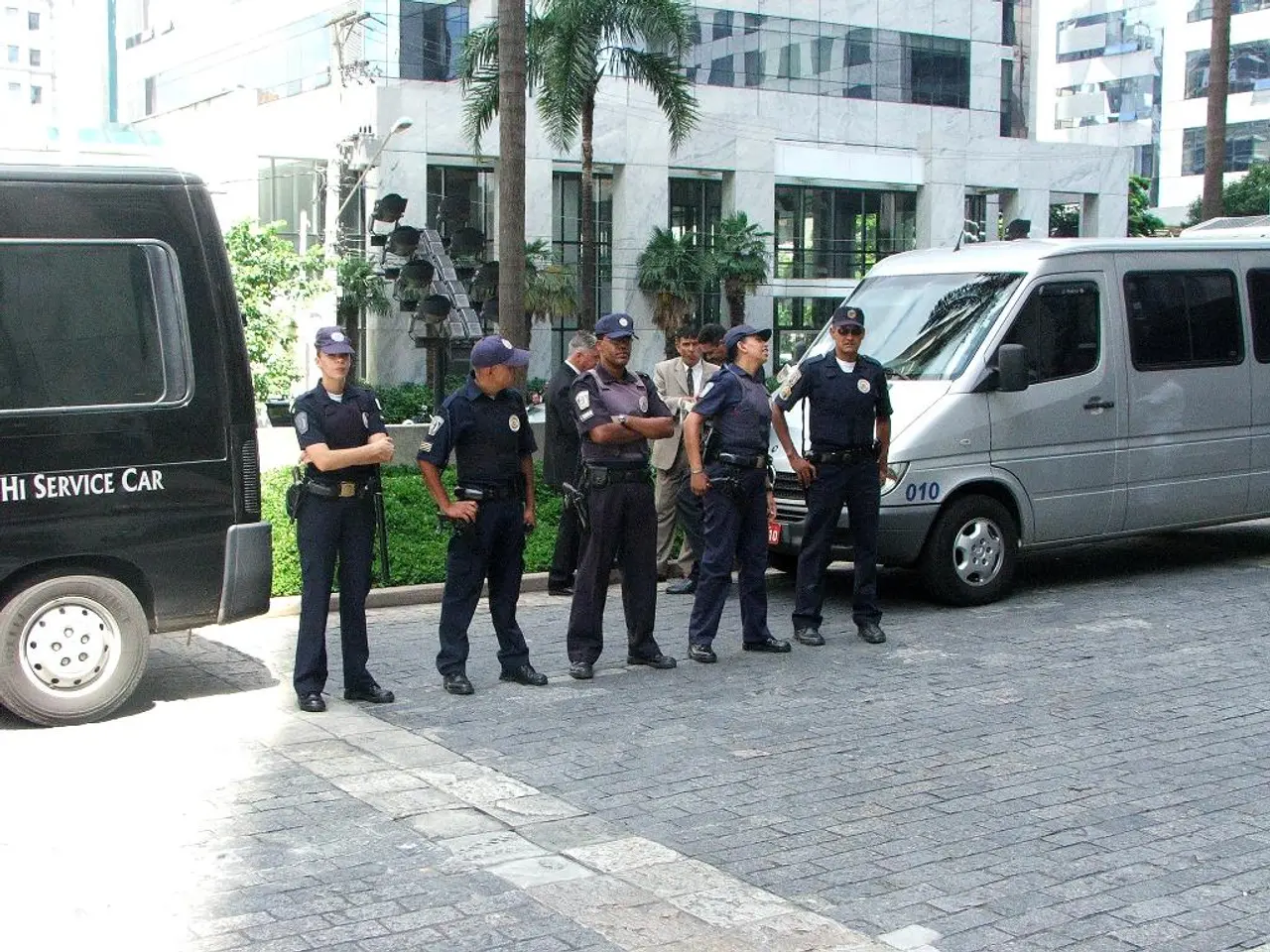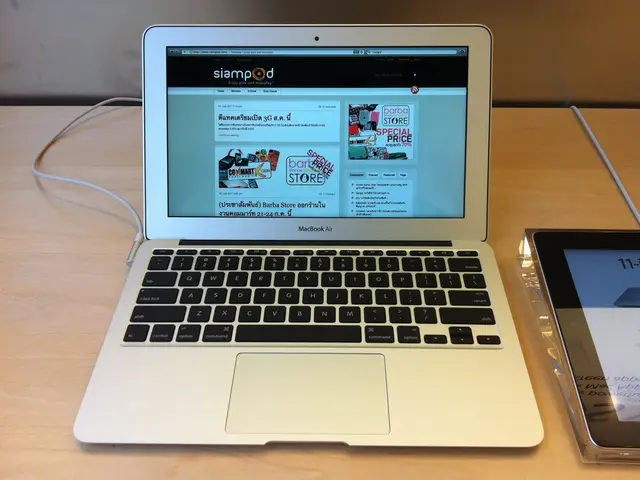Police departments in England to deploy vans equipped with facial recognition technology
The UK government and police forces are planning to expand the use of facial recognition technology, aiming to enhance crime-fighting capabilities.
Overview of Expansion Plans
The Metropolitan Police intend to significantly increase their use of live facial recognition, potentially deploying it up to 10 times a week across five days as part of their restructuring efforts to address officer and staff shortages. The expansion will also involve 10 live facial recognition vans being used by seven police forces in England, including Greater Manchester, West Yorkshire, and South Wales, in addition to the Metropolitan Police and South Wales Police who have already trialled the technology [1][2][3][4].
Impacts
The Met Police has reported over 1,000 arrests using live facial recognition, with approximately 773 leading to charges or cautions, suggesting some effectiveness in crime reduction [1]. However, the widespread use of facial recognition raises significant privacy concerns, with critics arguing it turns people into "a nation of suspects" [3]. There is also a risk of false positives, leading to wrongful accusations and mistreatment of individuals [3].
Controversies
Rights groups are critical of the expansion without adequate legislative safeguards, calling for robust regulations to prevent abuses of the technology [2][3]. The use of facial recognition is seen as a significant expansion of the surveillance state, with concerns about potential biases in the algorithms [2]. While the algorithm used has been tested and found to have no bias by the National Physical Laboratory, ongoing concerns about potential biases remain [2].
Regulations
Currently, police use of live facial recognition must follow College of Policing guidelines and comply with the surveillance camera code of practice. Only trained officers operate the technology. The government plans to launch a consultation in the autumn to shape a new legal framework for the technology [2]. Despite the lack of specific legislation, the Court of Appeal has confirmed that police can use facial recognition under common law powers [3].
Lindsey Chiswick, from the National Police Chiefs' Council (NPCC), views the expansion of facial recognition technology as an "excellent opportunity for policing", as it will aid officers in locating suspects "quickly and accurately". The government has pointed to independent testing by the National Physical Laboratory, which found the technology to be "accurate" and showing "no bias for ethnicity, age, or gender" [2]. However, Amnesty International UK has called for the plans to be "immediately scrapped" [4].
More than 1.6 million people have had their faces scanned in South Wales, primarily on football match days in Cardiff city centre. The Metropolitan Police has reported 580 arrests for offences such as rape, domestic crime, and knife crime over the course of 12 months due to the use of facial recognition technology [1]. The Home Secretary, Yvette Cooper, has announced these plans, with the Home Office stating that the technology will be subject to strict rules [1][3].
The expansion of facial recognition technology by UK police forces is a contentious issue, with ongoing debates about privacy, ethics, and regulatory oversight.
[1] BBC News (2021). Facial recognition: Met Police to double use of live tech. [online] Available at: https://www.bbc.co.uk/news/uk-59432662
[2] The Guardian (2021). UK police to use facial recognition vans in seven forces as Yvette Cooper unveils plans. [online] Available at: https://www.theguardian.com/technology/2021/jun/15/uk-police-to-use-facial-recognition-vans-in-seven-forces-as-yvette-cooper-unveils-plans
[3] Sky News (2021). Facial recognition: What are the concerns about the technology? [online] Available at: https://news.sky.com/story/facial-recognition-what-are-the-concerns-about-the-technology-12335543
[4] Amnesty International UK (2021). UK police plans to use facial recognition technology must be scrapped. [online] Available at: https://www.amnesty.org.uk/press-releases/uk-police-plans-to-use-facial-recognition-technology-must-be-scrapped
- The increasing utilization of facial recognition technology by UK police forces, including deployment of vans in seven different forces, is a part of a broader war on crime and justice, potentially addressing officer shortages and contributing to arrests in cases such as rape, domestic crime, and knife crime.
- As politics surrounding facial recognition technology unfolds, discussions about privacy, ethics, and the necessity of regulatory safeguards are at the forefront, with controversial claims that the widespread use of technology could label people as "a nation of suspects" and lead to false positives, raising concerns about potential misuse and biases.




